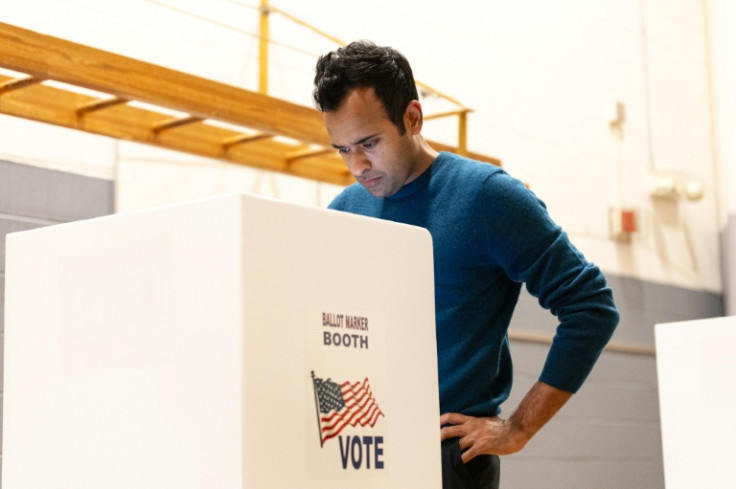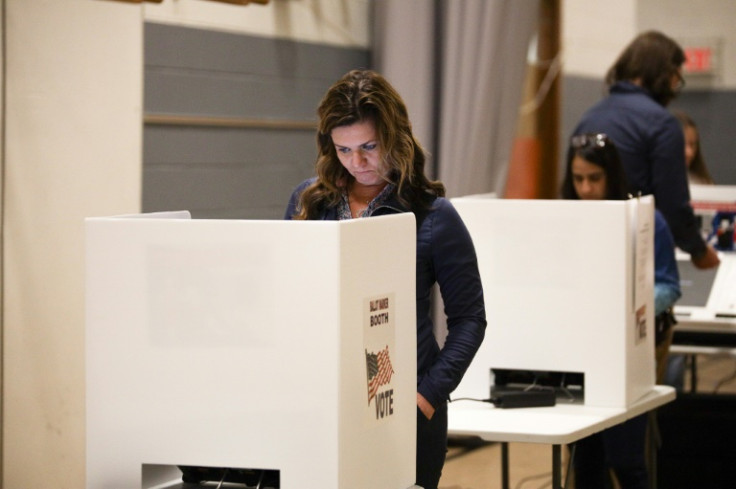Ohio Votes To Protect Abortion Rights In Latest Post-Roe Referendum For US

Residents of Ohio voted Tuesday to enshrine the right to an abortion in the Republican-run US state's constitution, US media projected, in what could be a bellwether for an issue which is likely to dominate next year's presidential race.
With a little more than half of the votes counted, US media, including CNN and ABC News, said the referendum on so-called Issue 1 would pass with more "yes" votes, approving an amendment to the state constitution that would affirm the right to "make and carry out one's own reproductive decisions," including abortion.
President Joe Biden, who has made abortion rights a keystone issue of his presidency, said Ohioans "voted to protect their fundamental freedoms."
"Ohioans and voters across the country rejected attempts by MAGA Republican elected officials to impose extreme abortion bans that put the health and lives of women in jeopardy," Biden said in a statement, referring to his likely 2024 opponent Donald Trump's slogan "Make America Great Again."
Biden also called efforts to curb reproductive rights "extreme and dangerous."
Before the 7:30 pm (0030 GMT) close of the polls in the midwestern state, Columbus, Vivek Ramaswamy, a 38-year-old Republican presidential candidate and conservative darling, told AFP he was against the measure to explicitly guarantee abortion writes in the state charter.
"The reason I'm voting no... is that I'm pro-life," Ramaswamy said. If the amendment were adopted, "I don't think that's a good move for the country," he added.
By contrast, Jill, 43, who preferred not to give her last name, said she voted 'yes' "as a woman to protect my reproductive rights."
With the 2024 election looming, America's political watchers have their eyes on Ohio, where activists on both sides of the reproductive rights issue have waged a fierce, multi-million-dollar campaign.
Tuesday's vote comes 17 months after the Supreme Court struck down the national right to abortion, paving the way for some states to completely outlaw the practice, even in cases of rape or incest.
In Ohio, the reversal of the landmark Roe v Wade decision triggered a state law that would ban all abortions after a heartbeat is detected in the womb -- usually around six weeks of gestation, before many people even know they are pregnant.
The law is currently suspended as it winds its way through legal challenges, meaning that for now it is still possible to obtain an abortion in Ohio up to about 22 weeks of pregnancy.
But it sparked a national outcry for the short time it was allowed to remain in effect last year, when a 10-year-old rape survivor was forced to travel to neighboring Indiana for an abortion after being denied care at home.
Erin, a 45-year-old who works in a brewery and preferred not to give her full name, noted how the two questions on the ballot -- Ohio is also voting on legalizing marijuana -- are issues she feels passionately about.
"We need to show up," she told AFP outside a polling station, and "put in our votes for these important issues."
A "yes" vote victory on Ohio's referendum, known as Issue 1, enshrines the right for the state's residents to "make and carry out one's own reproductive decisions," including on abortion.
It does, however, allow abortions to be prohibited after "fetal viability" -- when a fetus is able to survive on its own outside the womb -- unless a doctor believes a pregnant patient's life or health is in danger.
An August measure that would have made Ohio constitutional amendments harder to achieve -- put up for a vote in direct response to the looming abortion referendum -- was soundly defeated.
But voters in the state -- won by Donald Trump in 2016 and 2020 -- have drifted right.
Governor Mike DeWine warned that the ballot language would open the door to abortions at "any time during the pregnancy," with the possibility of minors obtaining abortions without their parents' knowledge.
The "Yes" camp has called that kind of framing "disinformation."
Many conservative US voters -- if not their elected representatives -- have expressed reservations about how far restrictions on abortion have gone after the overturning of Roe.
Over the past year multiple states including California, Kansas and Kentucky voted to preserve abortion rights or voted down efforts to restrict them.
Conservative-leaning Kentucky on Tuesday was projected to re-elect incumbent Democratic Governor Andy Beshear, who made abortion rights a key issue in his battle against Republican Daniel Cameron.
In Virginia, Republicans hope a win in legislative races will allow them to tighten abortion restrictions.


© Copyright AFP 2024. All rights reserved.





















